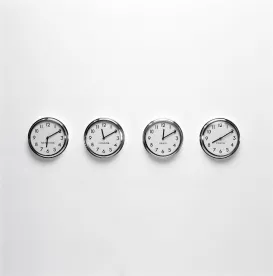In recent years, employers across the country have faced a great many class action and collective action lawsuits in which employees have alleged they are entitled to be paid for the time spent in security screenings before they leave their employers’ premises – but after they have already clocked out for the day. Retailers have been particularly susceptible to these claims as many require employees to undergo “bag checks” before they depart their stores to ensure that employees are not attempting to carry merchandise out in their bags or coats.
In late 2014, in Integrity Staffing Solutions, Inc. v. Busk, the United States Supreme Court held that time spent in security screenings was not compensable under the federal Fair Labor Standards Act (“FLSA”).
While Busk would seem to leave few circumstances under which employees could bring viable “bag check” claims under the FLSA, it did not put an end to the claims. Among other things, the compensability of such time under California state law, which defines compensable time differently than the FLSA, remained unaddressed. Indeed, late last week, Bath & Body Works Inc. reportedly agreed to pay $2.25 million to settle a putative class action asserting claims under the California Labor Code for unpaid work hours that included claims that employees were not paid for time spent in security screenings. The critical difference between the FLSA and California laws is that California law requires that employees be paid for all time when they are “subject to the control of the employer” or for all time that they are “suffered or permitted to work.” And, not surprisingly, plaintiffs’ lawyers in California have argued that employees are “subject to the control of the employer” and “suffered” to work while they wait for and participate in security screenings.
In many, if not most, security screenings, employees who do not have a bag or a coat are not subject to a screening. They simply leave without being checked. Under those circumstances, we have always argued that time spent in security screenings is not compensable precisely because the employee can avoid the screening altogether by not bringing a bag or coat.
Earlier this week, in what appears to be the first published opinion on the issue, District Court Judge William Alsup reached that very conclusion. In Frlekin v. Apple Inc., the Court dismissed a class-action lawsuit brought by Apple store employees seeking compensation under California law for time spent waiting for their bags to be searched before they left the stores where they worked. Granting summary judgment to Apple, the Court concluded that the time was not “hours worked” because the searches were peripheral to the employees’ job duties and could be avoided if the employees chose not to bring bags to work.
The history of Frlekin largely describes the development of the law on “bag checks” this decade. The Frlekin plaintiffs initially pursued their “bag check” claims under the FLSA and various states laws, including California law. The FLSA and non-California claims were dismissed following the Supreme Court’s decision in Busk, leaving just the California claims.
On those California claims, the District Court explained that, to prove that they were subject to the control of Apple during the bag checks, the plaintiffs had to show that:
-
Apple restrained their actions during the bag checks; and
-
the plaintiffs could not choose to avoid the activity.
The District Court found that the first element was met because, once a worker wished to leave with a bag, the worker was required to stand in line for the security screening. However, the District Court found that the second element was not met because a plaintiff could choose not to bring bags to work and thereby avoid the “bag check” altogether. Distinguishing cases cited by the plaintiffs, the District Court further held that “employee choice” is a dispositive element in determining whether an employee is subject to the control of the employer.
The District Court then addressed whether the employees were “suffered or permitted to work” during the time they were awaiting security screenings. The Court stated that liability arises when an employer knows that someone is performing work for its benefit, and allows that work to proceed. Therefore, “the touchstone is the failure to prevent work.”
On this issue, the District Court then held that time spent waiting for security screenings was not “work” because it had no relationship to plaintiffs’ job responsibilities; the plaintiffs merely waited passively as managers or security guards conducted the searches. Accordingly, time spent waiting for bag checks was not time during which the plaintiffs were “suffered or permitted to work.”
In light of its conclusions that the time spent in security screenings was not time during which the plaintiffs were “subject to the control” of Apple or “suffered or permitted to work,” the District Court held that the time was not compensable under California law and granted summary judgment to Apple.
While the District Court’s ruling is, of course, a significant victory for Apple and for employers in California, it does not necessarily spell the end of class actions in California alleging that employees are entitled to compensation for time spent in security screenings.
First, the Frlekin plaintiffs are likely to appeal this decision. It would be surprising if they did not.
Second, the decision is not binding on other courts, and in particular is not binding on California state courts.
Third, the decision will not be helpful to those employers who require all employees to undergo screenings regardless of whether they brought a bag or a coat.
For these reasons, it is too early to declare “bag check” lawsuits dead.
But, based on this decision, plaintiffs’ lawyers may think twice about bringing “bag check” class actions, and employers that have security screenings similar to Apple’s can take comfort that the first court to address the practice in a published decision has found that time spent in “bag checks” is not compensable time.



 />i
/>i

